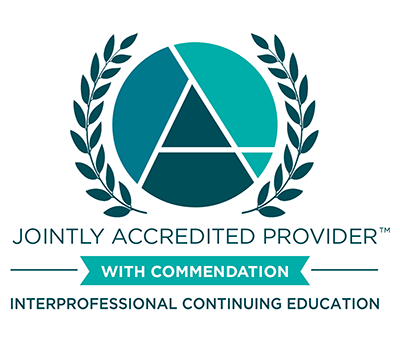HIV Stigma in Primary Healthcare Settings Workshop (2023-2024)
Stigma in Healthcare is a topic we often hear about but may not have an opportunity to talk openly about. Participants will have in-depth, interactive conversations on stigma: How we can define it utilizing several different models and theories, realize it and learn from it to best care for our patients. Content will also review how we can make our clinics into a safe space for patients including: Intake forms, programming, and what we enter as data in a patient’s chart (words matter, equity and power model).
If you are interested in registering for this course, please contact Sara Olson ([email protected])
Intended Audience
This course is designed for physicians, nurses, advanced practice nurses, physician assistants, pharmacists, and social workers who work with patients with HIV in primary care settings.
Learning Objectives
- Apply the LENS method to disrupt implicit bias in their practice.
- Apply strategies from the Mindful Language Toolkit to address stigmatizing language.
- Define stigma, HIV-related stigma, explicit bias, implicit bias, and social privilege and how it may affect the patient/provider relationship.
00:00 00.05 | Welcome & Introductions |
|
|
00:05 00:30
| Personal Refection |
|
|
00:30 01:30 | HIV-Related Stigma and Discrimination |
|
|
01:30 02:30 | The Conversation with Self |
|
|
02:30 02:40 | Break |
|
|
02:30 03:40 | The Conversation with Others |
|
|
03:40 04:10 | Lunch | ||
04:10 05:10 | Language Bias & Words Matter |
|
|
05:10 06:10 | Words Matter Anti-Biasing Activities |
|
|
06:10 06:30 | Closing and Evaluation |
|
|
It is the policy of the University of Wisconsin–Madison Interprofessional Continuing Education Partnership (ICEP) to identify, mitigate and disclose all relevant financial relationships with ineligible companies* held by the speakers/presenters, authors, planners, and other persons who may influence content of this accredited continuing education (CE). In addition, speakers, presenters, and authors must disclose any planned discussion of unlabeled/unapproved uses of drugs or devices during their presentation.
*Ineligible companies are those whose primary business is producing, marketing, selling, re-selling, or distributing healthcare products used by, or on, patients. The ACCME does not consider providers of clinical services directly to patients to be ineligible companies.
For this accredited continuing education activity all relevant financial relationships have been mitigated and detailed disclosures are listed below.
| Name | Title | Role | Financial Relationship Disclosures | Discussion of Unlabeled/Unapproved Uses of Drugs/Devices in Presentation? |
| Sara Olson, BSN | Regional EHE Project Coordinator MidWest AIDS Education & Training Center | Clinical Director/Planning Committee Chair Faculty | No relevant relationships with ineligible companies to disclose | No |
| Sol del Mar Aldrete, MD | Assistant Professor, Infectious Disease Medical College of Wisconsin | Planning Committee Member | No relevant relationships with ineligible companies to disclose | No |
| Winsome Panton, DNP | Senior Director of Health Services Vivent Health | Planning Committee Member | No relevant relationships with ineligible companies to disclose | No |
| Joy Wedel, MSSW | Outreach Case Manager Vivent Health | Planning Committee Member | No relevant relationships with ineligible companies to disclose | No |
| Nicholas Olson, PharmD | Associate Director of Clinical Pharmacy Services Sixteenth Street Community Health Centers | Planning Committee Member | No relevant relationships with ineligible companies to disclose | No |
| Adam Thompson | Consultant AIDS Education & Training Center | Faculty | No relevant relationships with ineligible companies to disclose | No |
 | Accreditation Statement In support of improving patient care, this activity has been planned and implemented by the University of Wisconsin–Madison ICEP and Midwest AIDS Training & Education Center (MATEC). The University of Wisconsin–Madison ICEP is jointly accredited by the Accreditation Council for Continuing Medical Education (ACCME), the Accreditation Council for Pharmacy Education (ACPE), and the American Nurses Credentialing Center (ANCC), to provide continuing education for the healthcare team. |
American Medical Association (AMA) The University of Wisconsin–Madison ICEP designates this live activity for a maximum of 6.0 AMA PRA Category 1 Credit(s)™. Physicians should claim only the credit commensurate with the extent of their participation in the activity. American Nurses Credentialing Center (ANCC) The University of Wisconsin–Madison ICEP designates this live activity for a maximum of 6.0 ANCC contact hours. Accreditation Council for Pharmacy Education (ACPE) The University of Wisconsin–Madison ICEP designates this live activity for a maximum of 6.0 hours/6.0 units of CPE credit. Credit can be earned by documented attendance. Credit will be provided to NABP CPE Monitor within 60 days after the activity completion. Universal Activity Number (UAN): See individual sessions for UAN. ASWB Approved Continuing Education (ACE) As a Jointly Accredited Organization, the University of Wisconsin–Madison ICEP is approved to offer social work continuing education by the Association of Social Work Boards (ASWB) Approved Continuing Education (ACE) program. Organizations, not individual courses, are approved under this program. Regulatory boards are the final authority on courses accepted for continuing education credit. Social workers completing this course receive 6 general continuing education credits. Continuing Education Units (CEUs) The University of Wisconsin–Madison ICEP, as a member of the University Professional & Continuing Education Association (UPCEA), authorizes this program for 0.6 CEUs or 6.0 hours. | |
If you are interested in registering for this course, please contact Sara Olson ([email protected])

 Facebook
Facebook X
X LinkedIn
LinkedIn Forward
Forward